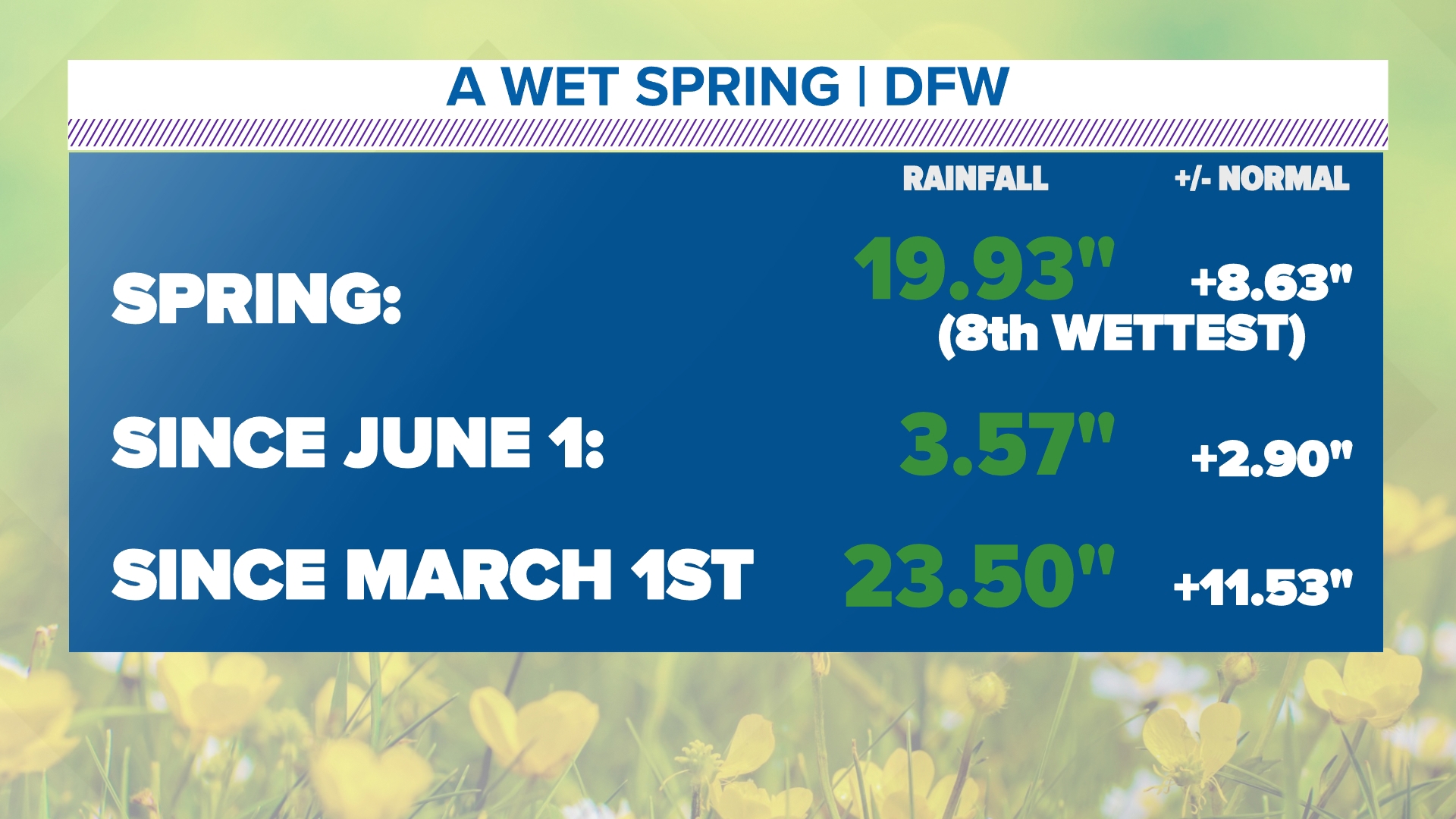DALLAS — Be sure to download the WFAA app to track the latest forecast and get alerts from our team.
We hear it all the time...
"Oh, we had a warm winter. That means it is going to be a miserable summer."
"It was so hot this summer! We're not going to get any snow this winter."
"Oh my gosh it hit the 90s in February! Summer is going to be brutal!"
You get the idea.
From a meteorological perspective, what happens in a preceding season hardly ever influences the following season. How warm or cold it was during the winter does determine how cool or hot it will be during the summer.
However, there is a notable exception.
A Rainy Spring = Below Normal Summer
It does seem there is a correlation between having a rainy spring and a summer that is either below normal or nowhere close to record hot.
When we look at the Top 15 rainiest springs on record in DFW, only TWO of the following summers went on to have above normal temps (2015 and 2020). Those summers were the 22nd warmest and 37th warmest and had 15 and 9 triple-digit days respectively.
The other 13 years ranged from 46th warmest to 118th warmest on record (records go back to 1899).
Since we've been able to accurately track El Nino and La Nina (since 1950), the wettest springs that occurred since 1950 all happened in either El Nino or Neutral conditions. This spring was an El Nino spring.
How does a rainy spring influence the summer?
There are two big reasons:
- When the ground is saturated from repeated rounds of rain, solar energy from the sun goes toward evaporating that wet ground instead of heating up dry ground. So the soggier the ground or the more soil moisture that is in place, the harder it is for the incoming sunshine to heat up that ground. There's a reason most of our hottest summers come during drought years. That dry ground is just easier to heat up.
- As the evaporation mentioned above occurs, it creates a mild cooling effect to the surrounding area. This is because heat is being used to evaporate any moisture. The surrounding air loses thermal energy due to this process. This is similar to how our bodies stay cool by sweating. As that sweat evaporates from our skin, it helps cool us off.
Put those two things together and a wet spring leads to a saturated ground which helps lessen the summer heat versus if the ground was much drier.
So what does this spring mean for this summer?
This spring was the 8th wettest on record. So if history is any indication, this summer has a decent chance of not being one of the hottest on record.
Could it still be above normal? Yes, it has happened before.
Could we still have a decent amount of triple-digit days? Yes.
But the odds of it being as hot as the last couple of summers (2023 was the 3rd hottest and 2022 was the 5th hottest), are low.
Time will tell!

